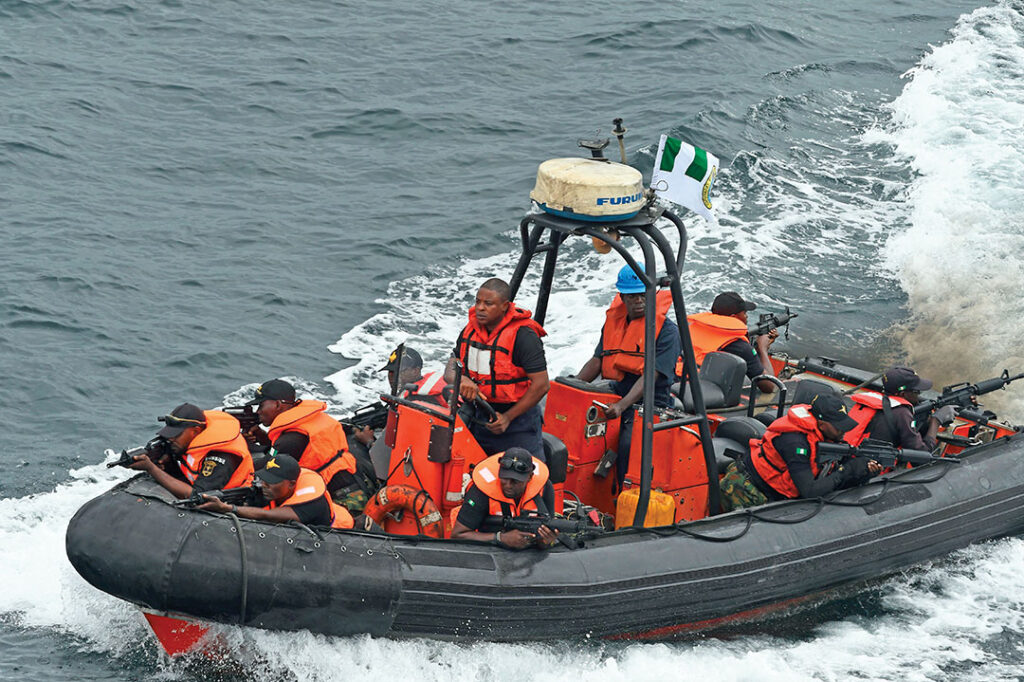Fifteen African countries, including host South Africa, wrapped up business at a Sea Power for Africa Symposium by endorsing nine key outcomes for the future of maritime cooperation.
The symposium in Cape Town, the fifth of its kind, ended in late October 2024 with a pledge of unity. Military Africa reported that the symposium delved into four primary themes:
- Maritime security: Addressing sea power and maritime threats.
- Blue justice: Extending the rule of law and protecting human rights.
- Blue economy: Defending and policing maritime economic interests.
- Oceans health: Building policing and coast guard capacities.
Topping the key outcomes list was strengthened regional collaboration, explained as a need to break down barriers to internaval cooperation, share maritime domain awareness information and conduct regular joint maritime exercises. Another was accelerating implementation of the African Integrated Maritime Strategy 2050 by way of joint maritime patrols, “reinforcing information sharing between maritime domain awareness centres,” and starting to make the Combined Exclusive Maritime Zone of Africa a reality.
The Institute for Security Studies reports that establishing the Combined Exclusive Maritime Zone for Africa is an objective of Africa’s Integrated Maritime Strategy. The intention is to create “a common maritime space to facilitate geostrategic, economic, political, social and security benefits and minimise transnational threats.”
Other outcomes adopted included:
- Supporting the African Charter on Maritime Security and Safety and Development, known as the Lomé Charter.
- Prioritizing engagement between African navies and African defense industries in naval acquisitions.
- Calling for Future Sea Power for Africa conferences to be held every two years with Nigeria to host in 2026.
Countries represented at the symposium were Algeria, Angola, Burundi, Cameroon, the Democratic Republic of the Congo, Egypt, Equatorial Guinea, Ghana, Kenya, Malawi, Namibia, Nigeria, Senegal, South Africa and Togo.

